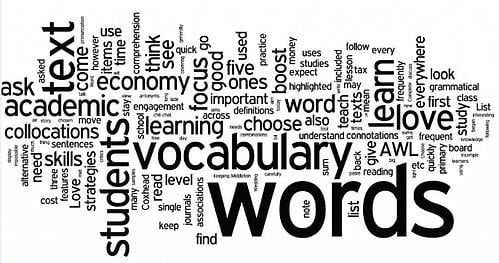🎁 AP SUMMER BOOTCAMP: Avail 100$ Discount 🎁
The Evolution of SAT Vocabulary: From Obscure Words to Practical Usage
Gone are the days when SAT preparation meant memorizing long lists of complicated and rarely used words. The test has evolved, shifting its focus from obscure vocabulary to practical word usage in context. Students no longer need to recall difficult words like obfuscate or recalcitrant but must instead understand how words function in real-world scenarios. This change has made the SAT more about reading comprehension and critical thinking rather than rote memorization.
DIGITAL SAT
3/22/20252 min read


Earlier versions of the SAT heavily tested students on definitions, often throwing in words that were uncommon in daily language. Many students spent hours cramming vocabulary lists, only to find that they struggled to apply those words effectively. Now, the SAT emphasizes words in context, meaning that test-takers must determine the meaning of a word based on how it is used within a passage. This shift reflects the real-life skills students need for college and beyond, where understanding tone, nuance, and multiple meanings of a word is far more useful than simply knowing its definition.
For example, a common word like resolve can have multiple meanings. It can refer to finding a solution to a problem, but in a different context, it might mean having strong determination. Instead of testing isolated meanings, the SAT now requires students to analyze how a word is used in a sentence and interpret its meaning accordingly.
With this change, students should adapt their preparation strategies. Rather than memorizing vocabulary lists, they should focus on reading widely and engaging with complex texts. Reading newspapers, classic literature, and well-written essays can naturally improve vocabulary by exposing students to words in different contexts. Understanding how words function within a passage helps build a stronger grasp of their meanings, making it easier to navigate the SAT’s reading and writing sections.
Additionally, practice is key. Regularly encountering challenging words in well-structured sentences helps students develop an intuitive understanding of vocabulary. By analyzing passages and understanding the tone and context, they become better at recognizing word meanings without relying on memorization. The more they read and engage with diverse materials, the more naturally vocabulary growth will occur.
As the SAT continues to evolve, so should study methods. The focus is no longer on memorizing words in isolation but on developing a deeper understanding of language. By shifting towards reading comprehension and context-based learning, students can improve their scores while also building skills that will benefit them in college and beyond.
📞 Connect with Pi-Theta Test Prep:
Email: connect.pitheta@gmail.com
Phone: (+91) 7411773678
Website: Pi Theta
🎓 Book an appointment: Schedule Now
Schedule a FREE Demo session: Click Here
Pi-Theta FREE Diagnostic Test: Take the Test
📺 YouTube Channel: Access Free Math Videos
📖 College Board Information:
SAT Test Dates and Registration: Check Here
SAT Registration: Register Now
🚀 With Pi-Theta Test Prep, you’ll be fully prepared to ace the SAT! 🎯🎓
Pi-Theta Test Prep
Pi-Theta Test Prep empowers students with expert SAT Math and AP Calculus instruction, offering clear, efficient strategies and problem-solving tricks. Aiming for a 1500+ SAT? Join us for real College Board question explanations on YouTube, plus guaranteed results for private students—700+ in Math and Reading/Writing! Let’s ace those exams together!
Get In Touch
connect.pitheta@gmail.com
(+91) 7411773678
Pi-Theta Test Prep © 2025. All rights reserved.
Company